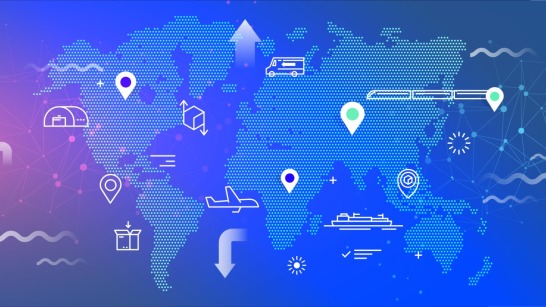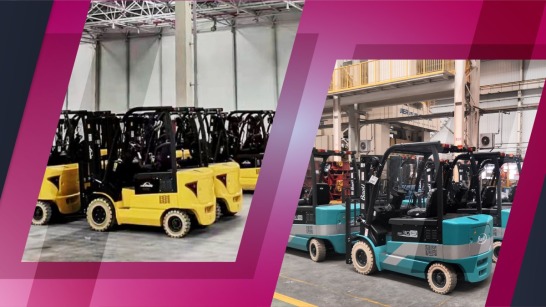And you used this experience to look for solutions long before the coronavirus pandemic?
Yes. In 2018/19, we joined forces with suppliers to ensure that production had the materials it needed and that we could meet our customer’s needs as fully as possible. At the same time, we worked with suppliers to resolve their capacity bottlenecks. During this period, a task force comprising employees from Logistics, Quality, and Procurement developed tools and processes that enabled us to make the working relationship with our suppliers significantly more efficient. These invaluable insights and experiences were passed on to an upstream line organization in Procurement, leading to the creation of a new unit tasked with supplier risk management and supplier development. The aim is to identify potential risks at suppliers at an early stage and to take appropriate measures – ideally proactive, not reactive. If we can help suppliers to meet our expectations with regard to quality, delivery dates, and quantities, then everyone benefits. These were our insights from the capacity crisis, which fortunately eased in December 2019.
And then coronavirus hit.
That’s right. Just when we thought we could relax a little, we were suddenly confronted with an entirely new situation and challenge. The COVID-19 pandemic has underlined just how important global supply chains are, and why we talk of ‘chains’ at all. Under normal circumstances, you simply maintain your network of direct tier-one suppliers. But in a situation such as this, you are suddenly confronted with many more and new problems, because the tier ones have problems with their own suppliers at the various lower tiers. It is precisely in these deeper-lying supplier structures that the pandemic has revealed some weaknesses that may not have been there before, or at least were not yet so acute and therefore visible. As Warren Buffett [the American investor and entrepreneur] said so well: “Only when the tide goes out do you discover who’s been swimming naked.”
To what extent might KION benefit from its experiences in Supply Chain Risk Management so far?
Our tools and processes have helped tremendously to stabilize supply and therefore production, of course. We have nonetheless created another dedicated task force, as coronavirus has raised many new questions and the situation is changing daily, if not by the hour. Before coronavirus, our task force dealt with individual suppliers, but once the pandemic hit it was suddenly dealing with entire countries. These have acted very differently depending on their situation, for example in terms of border controls, production, or protection measures. As a result, the number of suppliers needing attention at the same time has increased significantly, requiring a huge amount of additional time and resources. In many cases, we were able to help our direct suppliers and their partners to obtain special dispensation so that they could continue production.
This is of huge importance, as KION manufactures products that are essential to maintaining supplies to the general public, especially in times of crisis. We have provided support in terms of logistics, often through our internal logistics service providers, and we have helped to complete new paperwork at the borders. Things have now settled down again a bit. At the same time, the new challenges have helped us to improve our tools and processes. We have developed an internal escalation process, for example, that regulates who from our task force deals with which supplier and when – and how much time they spend on doing so.
How close is the collaboration with suppliers?
Let me give you an example: We were having problems with deliveries from a European supplier, so we sat down together to analyze the causes and realized that they had significant internal bottlenecks when it came to welding. We also determined that the supplier had the necessary skills and potential to improve in this area. So we sent one of our employees on site, who worked closely with the supplier to reorganize their production in just under three months. The outcome was an increase in production of around 70 percent, without any additional capital expenditure. As a result, the supplier was able to meet not only our demand but also that of other customers. The supplier received a significant boost in terms of flexibility and capacity, while our partnership has been strengthened considerably.
This is just one example, of course, but it demonstrates what is possible. To achieve such improvements, we sometimes have to address unpleasant issues at the start of the process. This is sometimes perceived as criticism, but it is actually a sign of our appreciation. After all, if you didn’t respect the supplier, you would simply switch to another one. Rather than go down that route, we have taken collaboration and communication with our suppliers to another level. This is how we have worked with our suppliers to resolve countless supply bottlenecks.
What is the current situation with KION’s supply chains?
Thanks to our established processes and our well-developed and transparent supplier network, the KION Group currently finds itself in a very good position. The success of our strategy is reflected in the plants of the KION Group and its subsidiaries, where the number of missing parts is lower than ever before, despite the coronavirus pandemic. This has been made possible by the tireless work of the task force, the processes that have been developed, and the close and trust-based relationship with our suppliers.
That said, since the second wave hit, the situation has deteriorated in many regions and delivery reliability has declined somewhat, and we are once again in close contact with more suppliers. Governments and authorities have learned a lot from the first wave in the spring and know what to do to avoid crippling entire industries. But we cannot afford to stand still, and we must strive for further improvements to the way we work with our partners. Compared to other companies in our sector, the KION Group has navigated the crisis well. And we – the KION Group and our suppliers – have emerged from these challenges with even more efficient processes.



